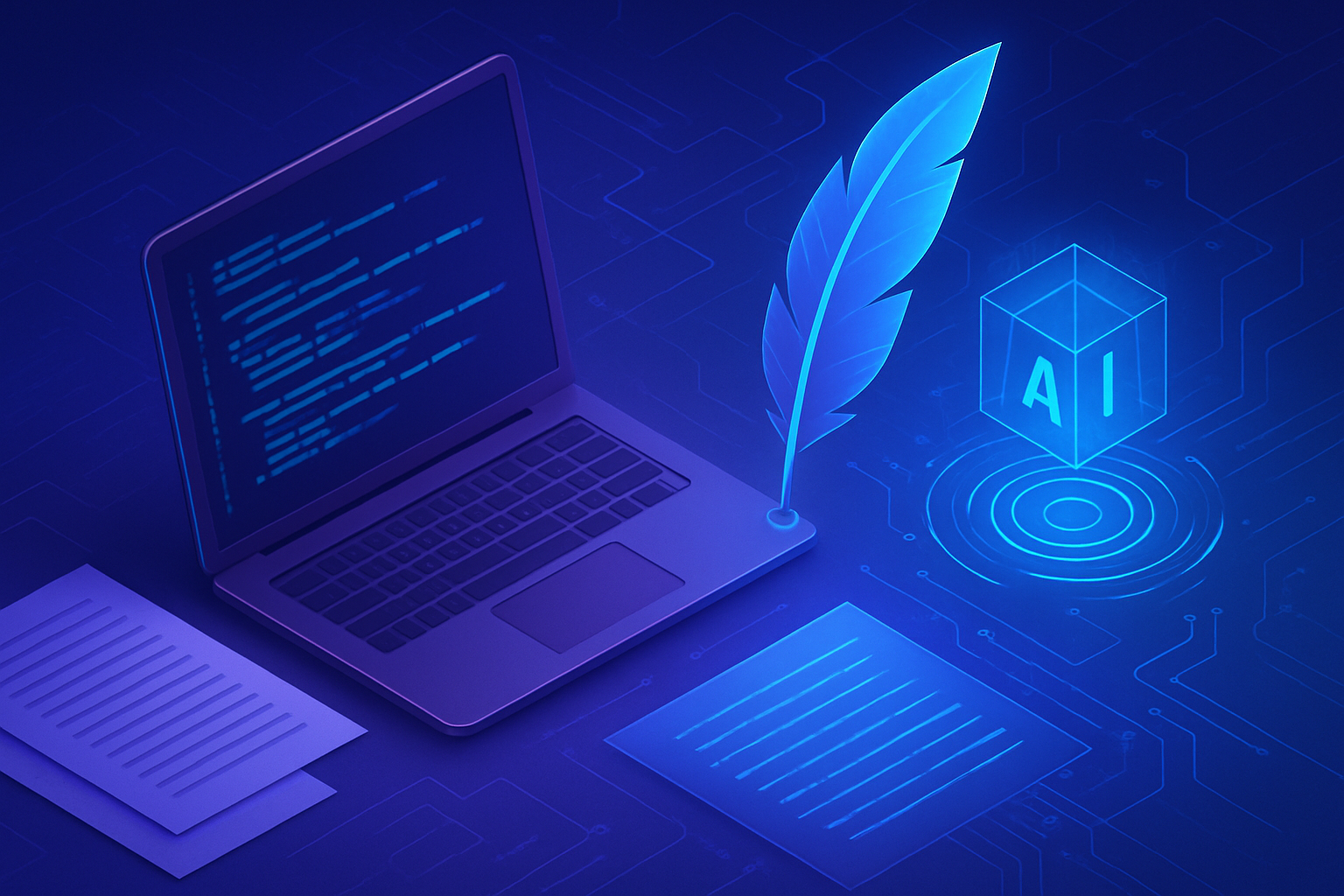The rapid rise of artificial intelligence calls into question the very nature of writing. Some see AI as a formidable opponent, others as a valuable ally. Every day, students and creators wonder about the impact of this technology, facing challenges of authentic assessment and personal creativity. Writing practices are evolving, integrating subtle tools to enrich the creative process. In this context, artificial intelligence can become an intellectual partner, fostering critical thinking rather than an escape from responsibilities. The challenge remains to maintain authenticity in discourse, combining technological wisdom with writing ethics.Artificial Intelligence: A Tool, Not an Escape for Writing
Artificial Intelligence: A Tool, Not an Escape for Writing
New technologies are transforming assessment and writing practices in academic and professional settings. Generative artificial intelligences, in particular, raise pertinent questions about their impact on creativity and text production. According to Manuel Cervera-Marzal, sociologist, rather than prohibiting the use of AI, it is appropriate to reinvent teaching methods.
A Disconcerting Assessment
Teachers are questioning the authenticity of the work submitted by students. Many have observed writings full of formality, often lacking personality, suggesting the use of artificial intelligence systems. This phenomenon raises the question of the validity of established assessment methods. If producing a standard essay becomes accessible in a few clicks, it indicates a misalignment of current evaluation to effectively measure the expected intellectual engagement.
From Use to Collaboration
Attempts to regulate access to AI are futile. Technology can become a valuable ally in the writing process. Students have leveraged tools to develop counter-arguments or test the robustness of their ideas. Used wisely, AI generates a richness in discourse, transforming the writer into a partner in intellectual innovation. It thus becomes a means to enhance critical thought, rather than serving as a substitute for it.
An Expanded Reflection on Knowledge
Technology is not new in education. Historically, every technical advance has sparked irrational fears. For instance, Plato viewed writing as a threat to memory, while others blamed radio and television for their alleged negative influence on manners and culture. AI is part of this tradition. The fear of degradation in the quality of intellectual productions may be exaggerated.
Toward Enriching Interactions
When AI serves as a starting point for incisive discussions, it stimulates creativity. Students who use it to summarize texts, for example, often end up developing enriching personal analyses. These exchanges can lead to a better understanding of the topics addressed, promoting active and engaged learning. Thus, AI does not eliminate the need for critical thinking; it catalyzes it.
A Future to Redefine
The debate surrounding AI in the education sector represents an opportunity for transformation. Thoughtful integration of artificial intelligence technologies could lead to innovative pedagogical models. Rather than shying away from its challenges, education must embrace this evolution. This change in approach can offer a perspective for renewing traditional practices.
For examples of the impact of AI in various sectors, it is interesting to consult articles such as this one, which describes how AI shapes the future of cities. Another example from the employment field is this link, where a recruitment bot faced major issues.
Discussions emanating from the academic world continue to evolve, and an insight on the responsible use of AI, as suggested in this article, remains fundamental. Economic stakes are crucial in the current dialogue surrounding AI. Furthermore, the humanities, as highlighted by the Alan Turing Institute, appear essential for understanding the future development of these technologies.
Frequently Asked Questions about Artificial Intelligence: A Tool, Not an Escape for Writing
What is the main function of artificial intelligence in the field of writing?
Artificial intelligence helps generate ideas, improve text clarity, and provide style suggestions, while supporting the writer in their reflections.
Does the use of artificial intelligence for writing reduce creativity?
No, AI can be used as an additional tool to stimulate creativity. It offers new perspectives and different approaches that can enrich the writing process.
How does artificial intelligence ensure the originality of created content?
AI algorithms are designed to check originality by analyzing existing databases and producing unique texts based on writing patterns.
Can we trust AI to revise written works?
Yes, AI can perform revisions, although it is always advisable to conduct a human check for quality control and contextual judgment.
What are the best practices for integrating AI into the writing process?
Best practices include using AI for idea research, text structuring, and revision while maintaining control over the final content and adding a personal touch.
Could the use of AI in writing lead to a decrease in personal writing skills?
No, if used correctly, AI can serve as a learning tool. It helps improve writing skills by providing examples and corrections that aid in understanding writing techniques.
How can artificial intelligence assist in academic writing?
It can help structure arguments, reference sources, and offer suggestions to clarify complex concepts, thereby facilitating the writing process.
Can AI tools be used to avoid plagiarism?
Yes, some AI tools incorporate plagiarism detection systems that check for similarities with other texts, thus ensuring originality.
Is it ethical to use artificial intelligence to write texts?
Yes, as long as the use is transparent and the author attributes the creation to the AI, it can be considered ethical, serving as an assistance tool rather than a substitute for human thought.






